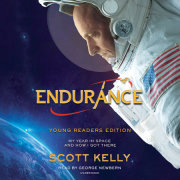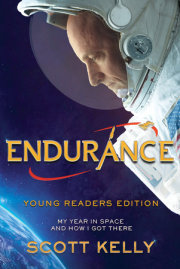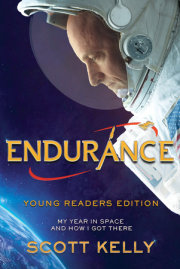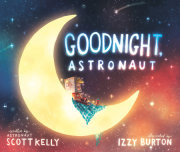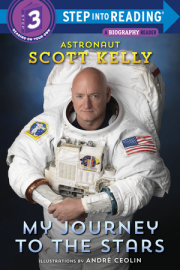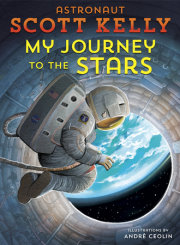My earliest memories are of the warm summer nights when my mother, Patricia, tried to settle Mark and me to sleep in our house on Mitchell Street in West Orange, New Jersey. It was still light outside, and I could hear the sounds of the neighborhood drifting in through the open windows--older kids yelling, the thumps of basketballs against driveways, the rustling of breezes high in the trees, the faraway sounds of traffic. I remember the feeling of drifting weightless between summer and sleep.
My brother and I were born in 1964. Members of my father’s side of our family lived all up and down our block, aunts and uncles and cousins in both directions. The town was separated by a hill. The more well-off lived “up the hill,” and we lived “down the hill.” I remember waking early in the morning with my brother when we were small, maybe two years old. My parents were sleeping, so we were on our own. We got bored, figured out how to open the back door, and left the house to explore, two toddlers wandering the neighborhood. We made our way to a gas station, where we played in the grease until the owner found us. He knew where we lived and stuck us back in the house without waking my parents. When my mother finally got up and came downstairs, she was confused by the grease all over us. Later that day, the owner came over and told her what had happened.
One afternoon when we were in kindergarten, my mother told us she had an important task for us. She held a white envelope in front of her as if it were a special prize. Mom told us to put the letter in a mailbox directly across the street from our house. But first, she warned us that it wasn’t safe to cross in the middle of the street--we could be hit by a car. So we were to walk up to the corner and cross the street there, then walk back to the mailbox on the other side of the street and mail the letter. When our job was done, we needed to take the long way home, walking to the corner to cross again. We promised to follow her instructions.
Mark and I set off and walked up to the corner. We looked both ways, crossed, and made our way to the mailbox. Mark boosted me up to pull down the heavy blue handle, and I proudly deposited the letter in the slot. With our job complete, it was time to head back home.
“I’m not walking all the way back to the corner,” Mark announced. “I’m just going to cross the street right here.”
“Mom said we should cross at the corner,” I reminded him. “You’re going to get hit by a car.”
But Mark had made up his mind.
I set off back toward the corner myself, eager to get home and be praised for having followed directions. I reached the corner, crossed, and turned back toward the house. The next thing I heard was car brakes squealing and the thump of a collision. Out of the corner of my eye, I saw something the size and shape of a kid flying up into the air.
Mark sat, dazed, in the middle of the street, while the frantic driver fussed over him. Someone ran for our mother, an ambulance came, and Mark was whisked away to the hospital. I spent the rest of the afternoon and evening with my uncle Joe and his family. I was left at home to worry about my rule-breaking brother, as I was steaming over the unfairness of having to stay home and eat liver for dinner with our uncle while waiting for news about my wounded twin. Mark had a concussion and had a short hospital stay and got lots of attention, while I felt like I got the worse end of the deal.
This was only one of Mark’s many hospital stays during our childhood. Mark broke his arm sliding down a handrail. Mark had appendicitis. Mark stepped on a broken glass bottle of worms and got blood poisoning. Mark was taken into the city for a series of tests to see whether he had bone cancer (he didn’t). We both played with BB guns recklessly, but only Mark got shot in the foot and then damaged by a botched surgery.
As our childhoods went on, we continued to take crazy risks. We both got hurt. We both got stitches so often we sometimes would have the doctors remove the stitches from the previous injury during the same visit new stitches were put in. But only Mark had to stay overnight at the hospital. I was always jealous of the extra attention this got him.
When we were about five, my parents bought a little vacation bungalow on the Jersey Shore, and some of my best memories from childhood are from that time.
At the shore, in the mornings, Mark and I had a kind of freedom my own children never had. We’d spend all day on the dock behind our bungalow, waiting to feel a crab nibble on the bait. We built rafts out of spare fence planks and set sail on Barnegat Bay. I remember falling off a dock before I knew how to swim and sinking into the dark and murky water of the lagoon. I didn’t know what to do about it. I simply watched the bubbles of the last of my air rising. Then my father, who had seen my blond hair drifting just above the water, grabbed a handful and pulled me out.
When Mark and I were in second grade, our parents sold the place on the Jersey Shore so they could buy a house “up the hill.” They wanted us to be able to go to a better public school. We moved onto a street lined with giant green oak trees, aptly named Greenwood Avenue. It’s odd that once we moved, we hardly ever saw our family on Mitchell Street again. Except for his parents, my father was often not on speaking terms with various friends and family members.
Copyright © 2018 by Scott Kelly. All rights reserved. No part of this excerpt may be reproduced or reprinted without permission in writing from the publisher.



